In January 2017, I did the hardest, most rewarding, terrifying, and joyful thing I’ve ever done: I became a mother. A few years later, days after a global pandemic was declared, I became a mother again. Parenting is hard at the best of times. Pandemic parenting, as so many of us know, was damn near impossible. In these last few years in looking for ways to feel more connected, grounded, and understood, I’ve reached for books. Books about all kinds of things, but lots and lots of books about what it means to be a mother. To resent being a mother. To be ambivalent about motherhood. To sit in the joy and magic of motherhood.
Here are the 10 that moved me, changed me, and connected me to this impossible and wonderful job.
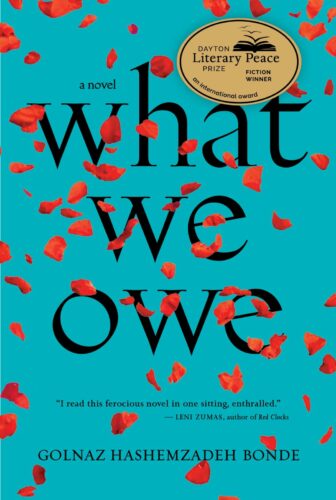
What We Owe by Golnaz Hashemzadeh Bonde, translated by Elizabeth Clark Wessel
What We Owe is a propulsive read and absolutely un-put-downable. It’s written in two-page chapters told in diary-like first-person by a mother who has been diagnosed with late-stage cancer.
We bounce between present-day Sweden, revolutionary Iran, and all the spaces in between with her mother, her sisters, her daughter and her husband. The story is at times heartbreaking and redemptive and the mother is alternatively sympathetic and also hateful.
This is a book about leaving and fighting, and the price of survival.
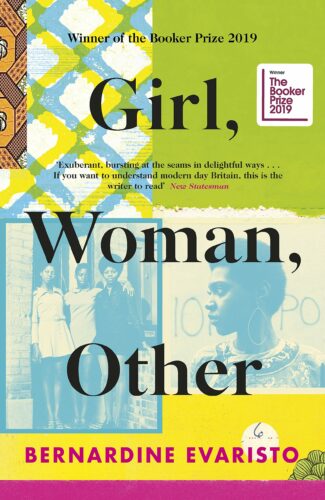
Girl, Woman, Other by Bernardine Evaristo
Told from the perspective of a dozen Black British women over a number of decades, Girl, Woman, Other was the joint winner of the 2019 Booker Prize. The stories of these women are interconnected and complicated, and it’s a gift to know them and to be in the capable storytelling hands of Bernadine Evaristo.
Motherhood – including motherhood ambivalence – is addressed with tenderness and humour, with lines like: “Yazz was the miracle she never thought she wanted, and having a child really did complete her, something she rarely confided because it somehow seemed anti-feminist.”
Critically, it’s also a book that deeply explores race, class, gender and a number of intersectionalities with nuance and complexity.
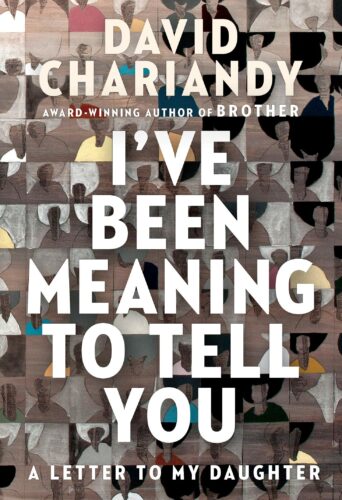
I’ve Been Meaning To Tell You: A Letter to My Daughter by David Chariandy
An homage to Maya Angelou’s Letter to my Daughter, Canadian author David Chariandy’s letter to his daughter is about race and place and belonging and vulnerability and how profound and challenging it is to be a parent. At just over 120 pages, it’s slim but rich in insights, heartache, joy, and grief.
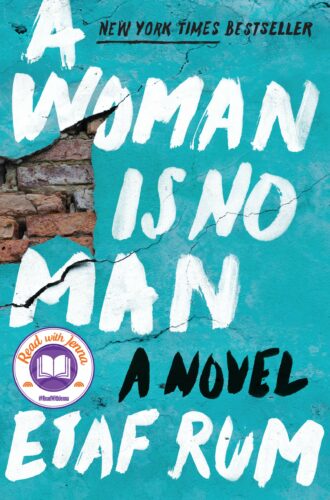
A Woman Is No Man by Etaf Rum
Written by Palestinian American author Etaf Rum, A Woman is No Man is set over multiple decades and features multiple narrators telling versions of the same events. Impossible to put down and equally heartbreaking, this book is about strong and complicated women and mothers, embedded in systems of oppression. It’s also about Islamophobia, misogyny, and intergenerational trauma.
I felt unmoored reading this, so full of grief, and so grateful for the opportunity to read about women and motherhood in all of its complexities and nuance through novels like this.
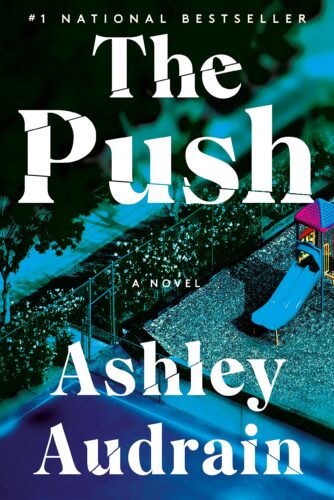
The Push by Ashley Audrain
Classified as a psychological drama, the first half of The Push by Toronto-based writer Ashley Audrain is an ode to the complexity of motherhood – to all the ways we grapple with what it means to be a good mother.
The second half features a more traditional kind of psychological thriller frame, but with such devastating insights into all the ways we don’t trust ourselves as mothers. How we too often don’t give ourselves space to say the dark and hidden things out loud. And how trauma, handed down from mother to daughter and through the generations, deserves to be seen and healed.
This is an emotionally intense read and does feature the death of a young child, so it will not be for everyone. But it’s an extraordinary read and one I’m so glad to see chosen by book clubs because I think it will help open up more space for these important and hard conversations to happen.
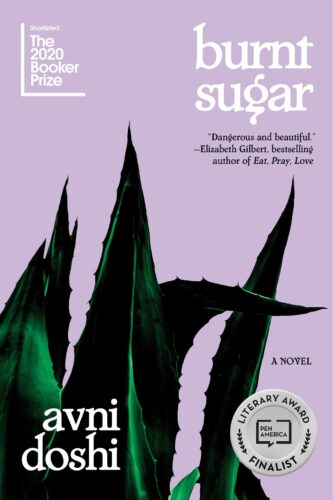
Burnt Sugar by Avni Doshi
Shortlisted for the Booker Prize in 2020, Burnt Sugar is about a daughter, who wasn’t cared for well or lovingly by her mother, deciding if and how to take care of her ill and quickly deteriorating mother. It’s about memory and how it shapes us, and what happens when the mother who hurt us can’t remember anymore.
And it’s also about how the cultural constraints and expectations of motherhood, the conspiracy of silence about how hard it is, the erasure of who we are when we make someone new, all collude to make these personal tragedies possible. So it’s a doozy. But an extraordinarily powerfully written doozy.
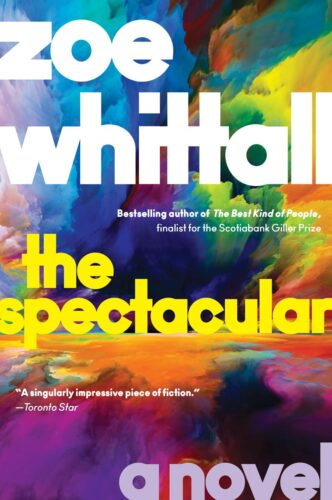
The Spectacular by Zoe Whittall
Spanning multiple decades, The Spectacular is about three generations of women and their connection to each other and themselves. We meet Missy, the successful musician who is touring with her band singing songs written about the mother who abandoned her. We meet Carola, her mother, who is in the midst of leaving a sex scandal at a commune she escaped to when the pressures of motherhood became too much. And finally we meet 83-year-old, Ruth, Missy’s grandmother who is trying to figure out how to get this mother and daughter to reconcile.
It’s about motherhood ambivalence, about the things women aren’t supposed to do and want, about the ways we fail and try to love. The writing feels at times claustrophobic and chaotic and at other times so tender and forgiving. It’s fun and insightful with deeply imperfect characters doing the best they can.
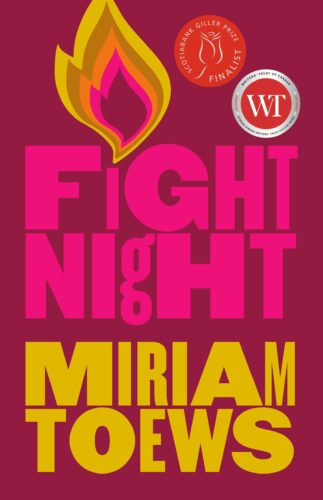
Fight Night by Miriam Toews
Fight Night is chaotic and intense, the story of three generations of women told from the perspective of a strong, feisty, resourceful but still sometimes innocent (yet never innocent enough) 9-year-old.
Shortlisted for a Giller, the style took some getting used to, but it’s Miriam Toews so you’re in incredibly good hands. I laughed so many times and I also sobbed and sobbed. There are some scenes that I don’t even understand how they could have been constructed so perfectly, so profoundly.
In an interview with Shelagh Rogers, Toews talked about how in some ways this story is a follow-up to Women Talking: what life could have been like for the women who left. And I just loved reading it with that in mind.
If you already know and love Toews, read this right away and if you don’t know her yet, you’re in for such a weird, rich, beautiful treat with these mothers and daughters.
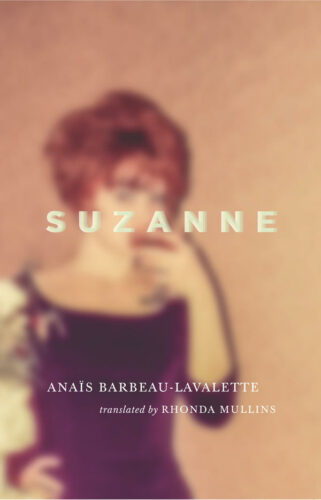
Suzanne by Anaïs Barbeau-Lavalette, translated by Rhonda Mullins
Thanks to Canada Reads 2019, I was introduced to this fictionalized biography of the author’s grandmother, Suzanne Meloche. The grandmother was a poet and painter who interacted with and was part of many historically significant moments in Quebec’s cultural history. She was also a mother who left her children.
Suzanne is about the granddaughter coming to terms with the grandmother’s decisions and the ripple effect they had on their family. This lyrical and engaging story is about the legacies we inherit, what it means to forgive and love, and about the limits of motherhood.
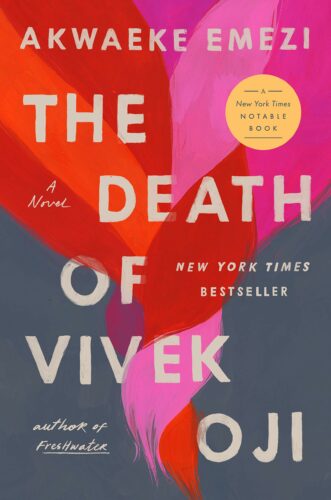
The Death of Vivek Oji by Akwaeke Emezi
Nigerian author Akwaeke Emezi is an extraordinary storyteller who uses Nigerian folklore and plays with narrative so expertly. The Death of Vivek Oji is dressed up like a page-turning murder mystery, but is really about what it means to know and love our children. It’s also profoundly about the strength, safety and sometimes shame of living in community with others.


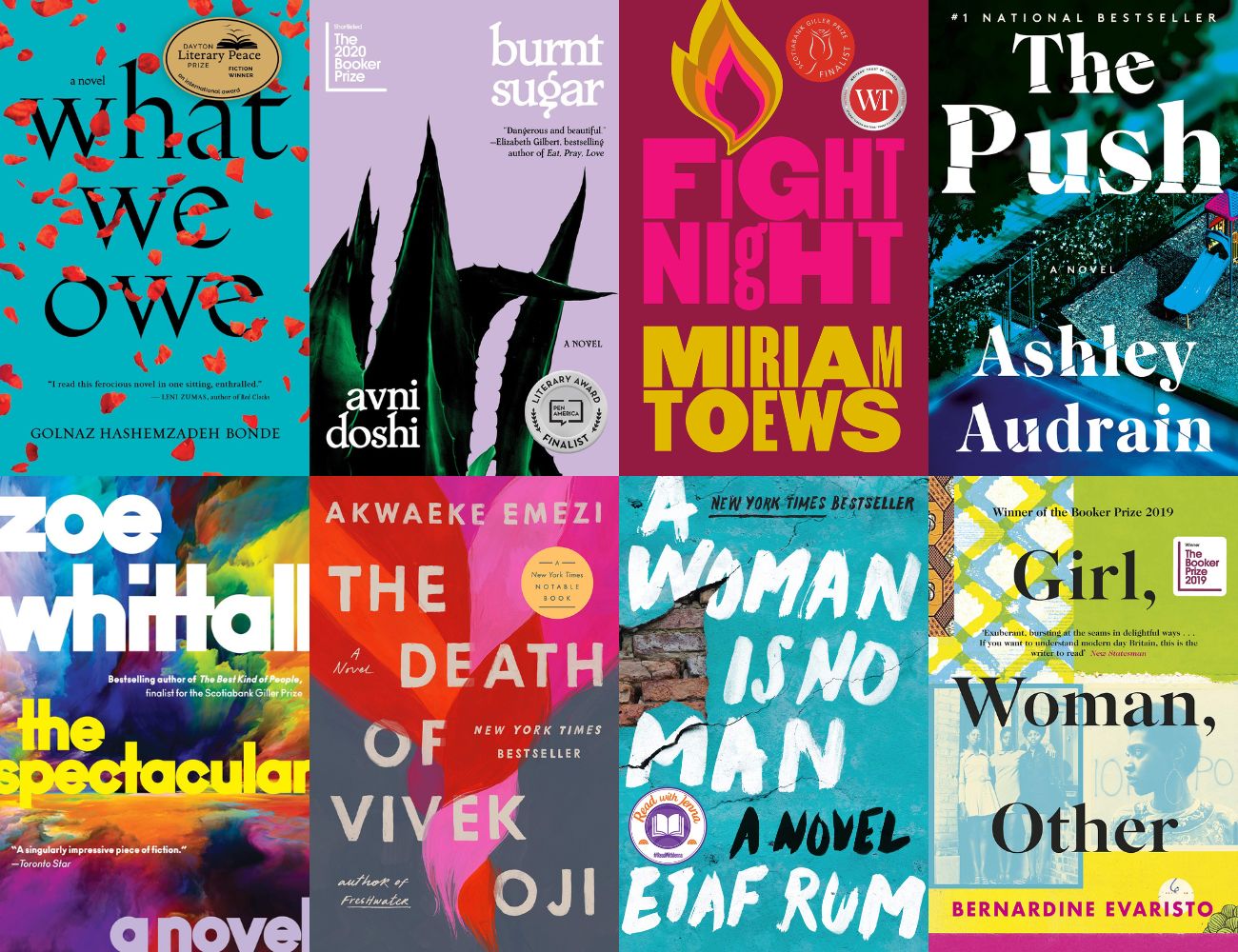
 Follow Us On Instagram
Follow Us On Instagram
